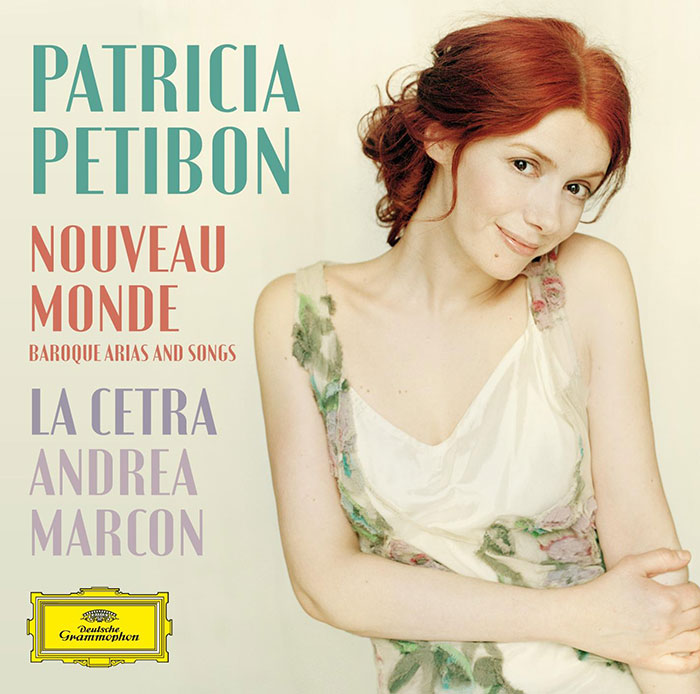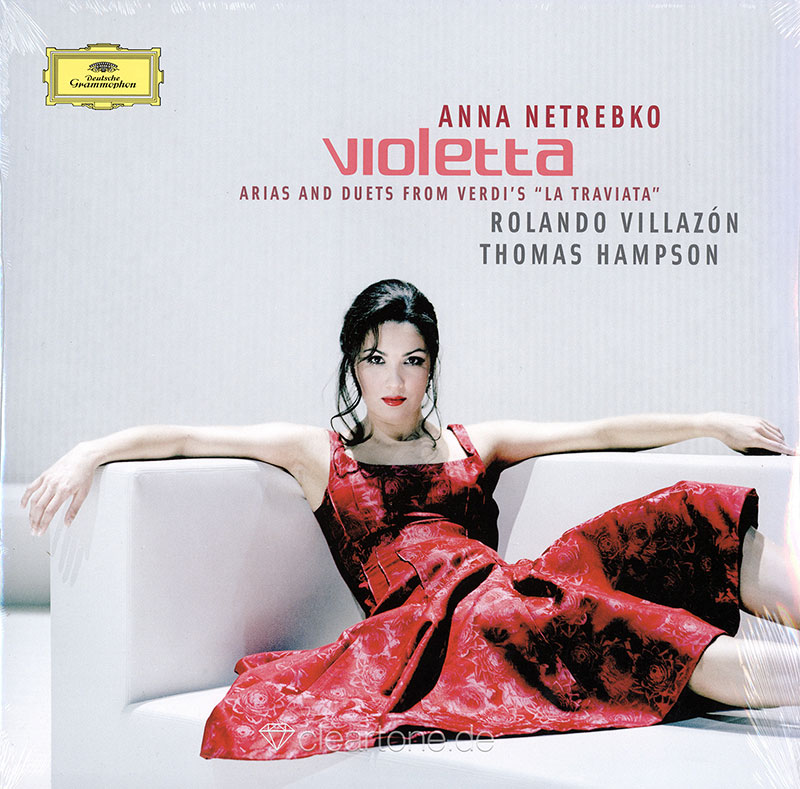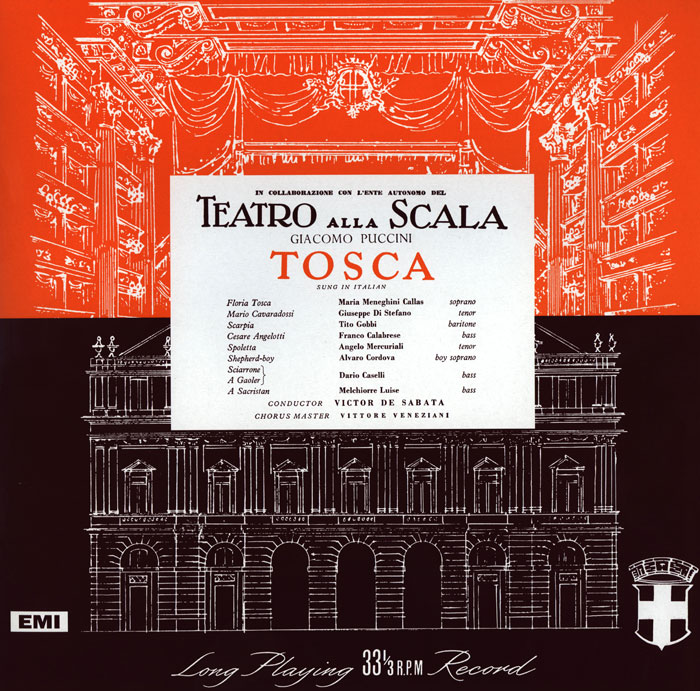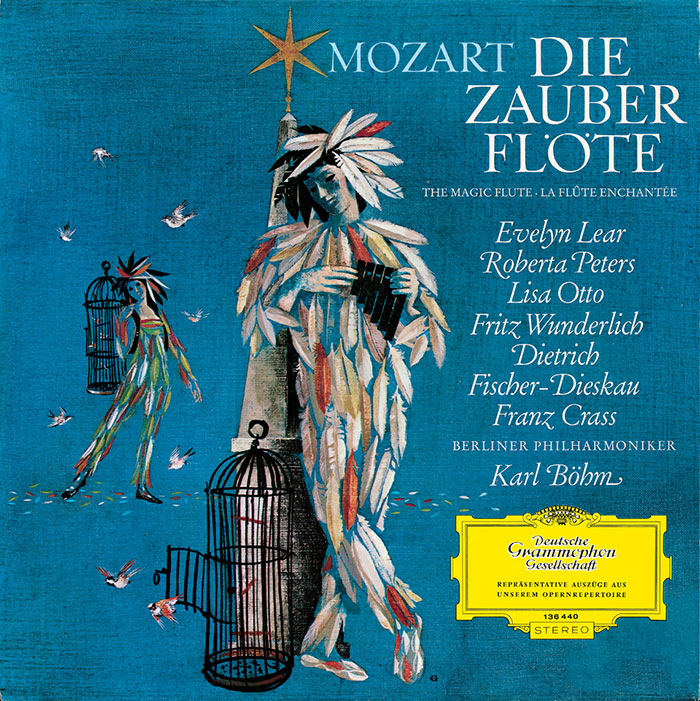Logowanie
Dziś nikt już tak genialnie nie jazzuje!
Bobby Hutcherson, Joe Sample
San Francisco
SHM-CD/SACD - NOWY FORMAT - DŻWIĘK TAK CZYSTY, JAK Z CZASU WIELKIEGO WYBUCHU!
Wayne Shorter, Freddie Hubbard, Herbie Hancock, Ron Carter, Elvin Jones
Speak no evil
UHQCD - dotknij Oryginału - MQA (Master Quality Authenticated)
Chesky! Niezmiennie perfekcyjny
Winylowy niezbędnik
ClearAudio
Double Matrix Professional - Sonic
najbardziej inteligentna i skuteczna pralka do płyt winylowych wszelkiego typu - całkowicie automatyczna
Patricia Petibon
Nouveau Monde - Baroque Arias and Songs
anon.:
Cachua a voz y bajo Al Nacimiento de Christo Nuestro Señor (from Codex Martinez Compañon)
Tonada la Lata a voz y bajo, para bailar cantando (from Codex Martinez Compañon)
Mon amy s’en est allé
Tonada la Lata el Congo a voz y bajo para baylar cantando (from Codex Martinez Compañon)
Greensleeves to a ground
Bailly:
Yo soy la locura
Charpentier, M-A:
Quel prix de mon amour (from Medée)
Prélude...Noires filles du Styx (from Medée)
Dieu du Cocyte et des Royaumes sombres (from Medée)
Handel:
No se emendará jamás, HWV 140
Nebra Blasco:
El bajel que no recela (from Vendado es amor, no es ciego)
En amor, pastorcillos, no hay quien distinga (from Vendado es amor, no es ciego)
Purcell:
When I am laid in earth (from Dido and Aeneas)
Fairest Isle (from King Arthur)
Rameau:
Rondeau – Forêts paisibles (from Les Indes Galantes)
Les Indes galantes: Tempête : La nuit couvre les cieux !
trad.:
J’ai vu le loup, le renard et la belette
- Patricia Petibon - soprano
WYDARZENIE!
Patricia Petibon, Sopran Andrea Marcon, Leitung La Cetra Barockorchester und Vokalensemble Basel
© Felix Broede / DG Das neue Album der »rothaarigen Schönheit« (FAZ) ist eine musikalische Reise von der alten in die neue Welt: Musik aus der Zeit der großen Entdecker. Petibon zeichnet auf ihrem Konzeptalbum ein faszinierendes Klangportrait dieser Ära durch eine spannende sowie überraschende Zusammenstellung mit Arien von Rameau, Charpentier, Händel und Purcell, die die Faszination der Komponisten über die neu entdeckten Landschaften ausdrücken, sowie farbenreichen südamerikanischen Volksliedern..
by Sarah Noble on November 14, 2012 (November 14, 2012) filed under Classical Music | Comment Now var switchTo5x=true; stLight.options({ publisher: "dr-4913c649-3e56-d01f-f7dc-3fd5be616aef", servicePopup:true, popup: 'true', doNotHash: false, doNotCopy: false, hashAddressBar: false, embeds:'true', }); Adventurous French soprano invites us on an exotic Baroque journey. It’s not often that an aria disc has you dancing, but this adventurous album from Patricia Petibon might just do the trick. The French soprano has combined two of her musical passions – Spanish music and the Baroque – into one program, in which 17th- and 18th-century arias and folksongs from England, France, Spain and Latin America mingle with gay abandon. Dance rhythms and catchy tunes abound, from the seguidilla of José de Nebra’s En amor, pastorcillos, to the chaconne of Charpentier’s Sans frayeur dans ces bois to the zippy French folksong J’ai vu le loup, which comes complete with bagpipes and historically informed pronunciation. There’s typical Baroque fare too, chosen to reflect the Old World’s fascination with the New: arias from Purcell’s Dido and Aeneas, Charpentier’s Médée and Rameau’s i, all of them set in farflung lands.It’s a diverse program, whose varied strands intertwine in fascinating ways. Dido’s Lament, for instance, is an intriguing companion to Le Bailly’s Yo soy la locura, and it’s interesting to hear Handel’s Spanish aria No se emenderá jámas amid its native counterparts. Petibon brings her own lively artistry to the mix, moving easily between Old World and New. She has the depth of tone for Dido and Médee, the playful sparkle for Rameau’s Zima, and the flexibility for Handel; and she enters just as idiomatically into the less formal world of the folksongs.Like most of Petibon’s albums, this one contains its share of vocal effects and quirky touches. This eccentricity has always been part of Petibon’s distinctive vocal personality, though, and is mostly well employed here, particularly in the colourful textures of the Spanish and Latin American selections. Indeed, it is these selections which set this album apart, their exotic sounds and infectious rhythms endowing them with an immediate, often toe-tapping appeal which Petibon’s bright soprano can’t help but enhance. She shares these laurels equally, however, with the musicians of Marcon’s La Cetra (and assorted soloists), whose playing explodes with authentic colours and threatens at every moment to steal the show.
Christmas 2012
****
“Conquest is one theme, confession another; the whole a breakneck A-Z of Baroque song from airs de cours to zarzuela.”
January 2013
“'Nouveau Monde' is a tightly thought-through and arranged and compelling programme, a tour de force for its performer/compiler, most atmospherically recorded. Compulsive, repeatable listening.”







































